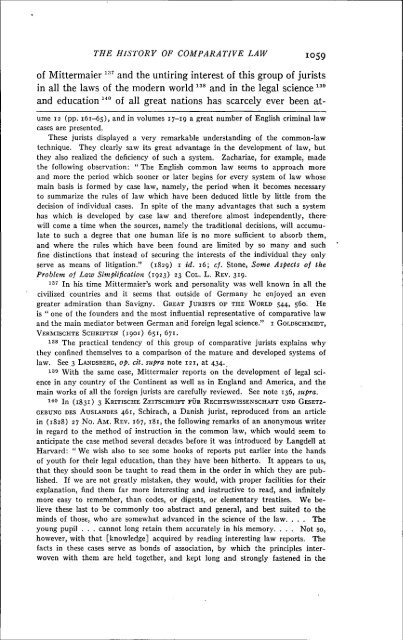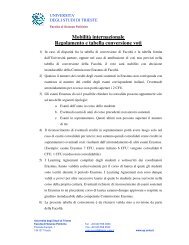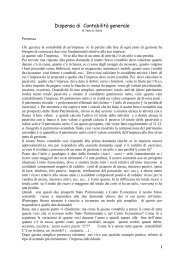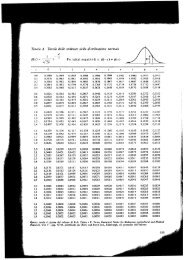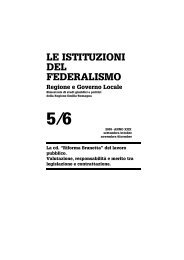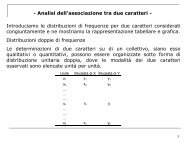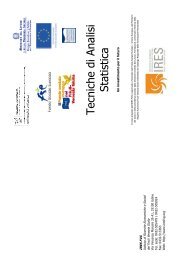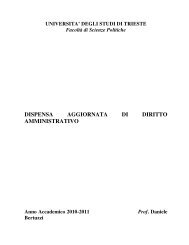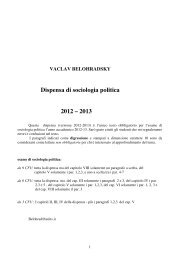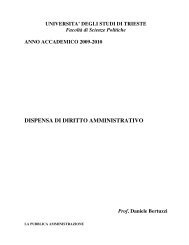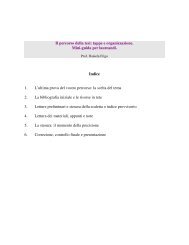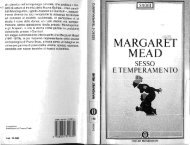THE HISTORY OF COMPARATIVE LAW * ^COMPARATIVE law, as ...
THE HISTORY OF COMPARATIVE LAW * ^COMPARATIVE law, as ...
THE HISTORY OF COMPARATIVE LAW * ^COMPARATIVE law, as ...
Create successful ePaper yourself
Turn your PDF publications into a flip-book with our unique Google optimized e-Paper software.
<strong>THE</strong> <strong>HISTORY</strong> <strong>OF</strong> <strong>COMPARATIVE</strong> <strong>LAW</strong> 1059<br />
of Mittermaier ^" and the untiring interest of this group of jurists<br />
in all the <strong>law</strong>s of the modern world ^^' and in the legal science ^^"<br />
and education ^'^ of all great nations h<strong>as</strong> scarcely ever been at-<br />
ume 12 (pp. 161-65), and in voltimes 17—19 a great number of English criminal <strong>law</strong><br />
c<strong>as</strong>es are presented.<br />
These jurists displayed a very remarkable understanding of the common-<strong>law</strong><br />
technique. They clearly saw its great advantage in the development of <strong>law</strong>, but<br />
they also realized the deficiency of such a system. Zachariae, for example, made<br />
the following observation: "The English common <strong>law</strong> seems to approach more<br />
and more the period which sooner or later begins for every system of <strong>law</strong> whose<br />
main b<strong>as</strong>is is formed by c<strong>as</strong>e <strong>law</strong>, namely, the period when it becomes necessary<br />
to summarize the rules of <strong>law</strong> which have been deduced little by little from the<br />
decision of individual c<strong>as</strong>es. In spite of the many advantages that such a system<br />
h<strong>as</strong> which is developed by c<strong>as</strong>e <strong>law</strong> and therefore almost independently, therewill<br />
come a time when the sources, namely the traditional decisions, will accumulate<br />
to such a degree that one human life is no more sufficient to absorb them,<br />
and where the rules which have been found are limited by so many and such<br />
fine distinctions that instead of securing the interests of the individual they only<br />
serve <strong>as</strong> means of litigation." (1829) i id. 16; cf. Stone, Some Aspects of the<br />
Problem of Law Simplification (1923) 23 COL. L. REV. 319.<br />
13T In his time Mittermaier's work and personality w<strong>as</strong> well known in all the<br />
civilized countries and it seems that outside of Germany he enjoyed an even<br />
greater admiration than Savigny. GREAT JURISTS <strong>OF</strong> <strong>THE</strong> WORLD 544, 560. He<br />
is " one of the founders and the most influential representative of comparative <strong>law</strong><br />
and the main mediator between German and foreign legal science." i GOLDSCHMIDT,<br />
VERMISCIITE SCHRIFTEN (1901) 651, 671.<br />
138 The practical tendency of this group of comparative jurists explains why<br />
they confined themselves to a comparison of the mature and developed systems of<br />
<strong>law</strong>. See 3 LANDSBERG, op. cit. supra note 121, at 434.<br />
139 With the same e<strong>as</strong>e, Mittermaier reports on the development of legal science<br />
in any country of the Continent <strong>as</strong> well <strong>as</strong> in England and America, and the<br />
main works of all the foreign jurists are carefully reviewed. See note 136, supra.<br />
!-"• In (1831) 3 KRITISCHE ZEITSCHRIFT FUR RECHTSWISSENSCHAFT UND GESETZ-<br />
GEBUNG DES AusLANDES 461, Schirach, a Danish jurist, reproduced from an article<br />
in (1828) 27 No. AM. REV. 167, 181, the following remarks of an anonymous writer<br />
in regard to the method of instruction in the common <strong>law</strong>, which would seem to<br />
anticipate the c<strong>as</strong>e method several decades before it w<strong>as</strong> introduced by Langdell at<br />
Harvard: "We wish also to see some books of reports put earlier into the hands<br />
of youth for their legal education, than they have been hitherto. It appears to us,<br />
that they should soon be taught to read them in the order in which they are published.<br />
If we are not greatly mistaken, they would, with proper facilities for their<br />
explanation, find them far more interesting and instructive to read, and infinitely<br />
more e<strong>as</strong>y to remember, than codes, or digests, or elementary treatises. We believe<br />
these l<strong>as</strong>t to be commonly too abstract and general, and best suited to the<br />
minds of those, who are somewhat advanced in the science of the <strong>law</strong>. . . . The<br />
young pupil . . . cannot long retain them accurately in his memory. . . . Not so,<br />
however, with that [knowledge] acquired by reading interesting <strong>law</strong> reports. The<br />
facts in these c<strong>as</strong>es serve <strong>as</strong> bonds of <strong>as</strong>sociation, by which the principles interwoven<br />
with them are held together, and kept long and strongly f<strong>as</strong>tened in the


